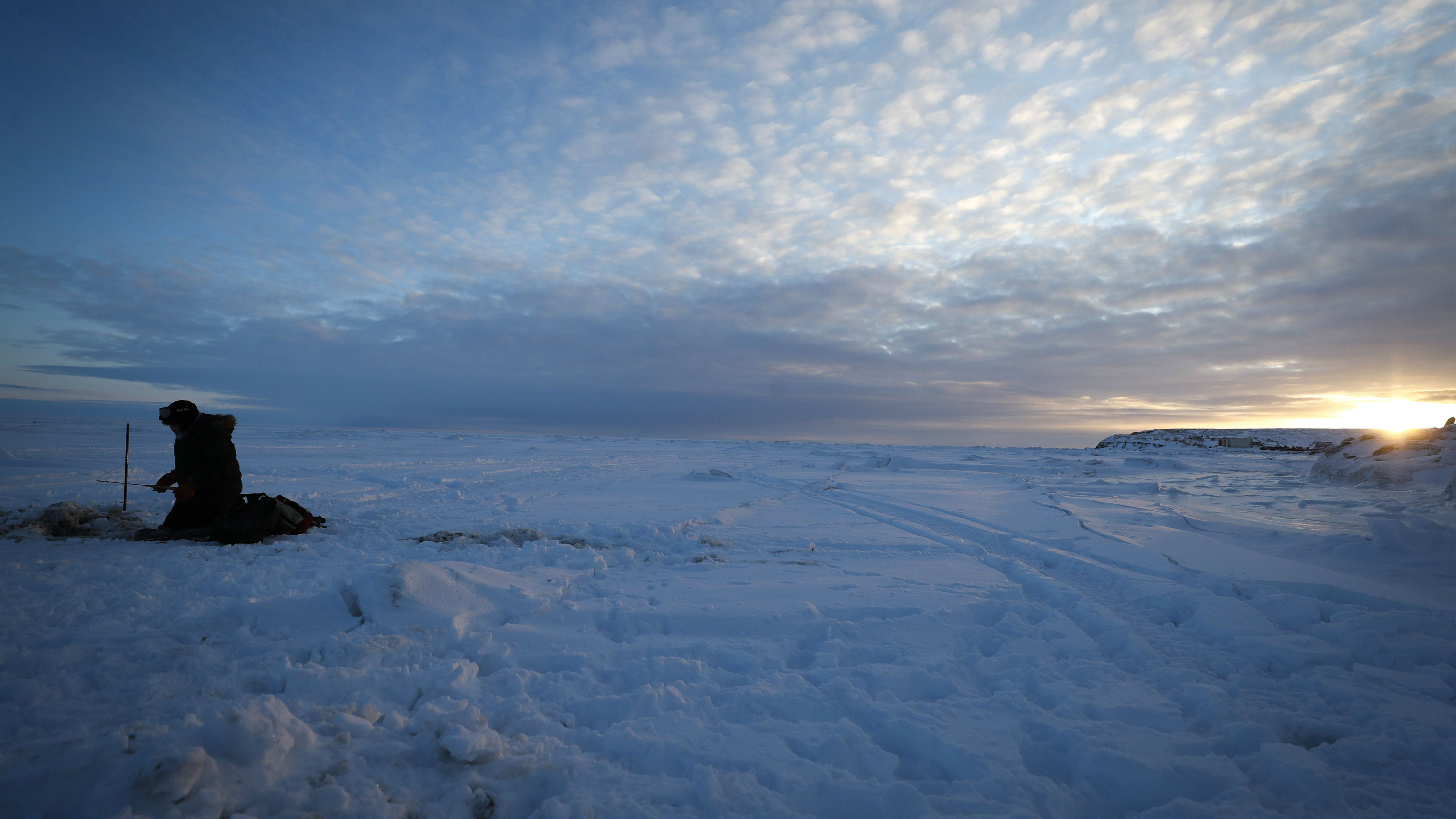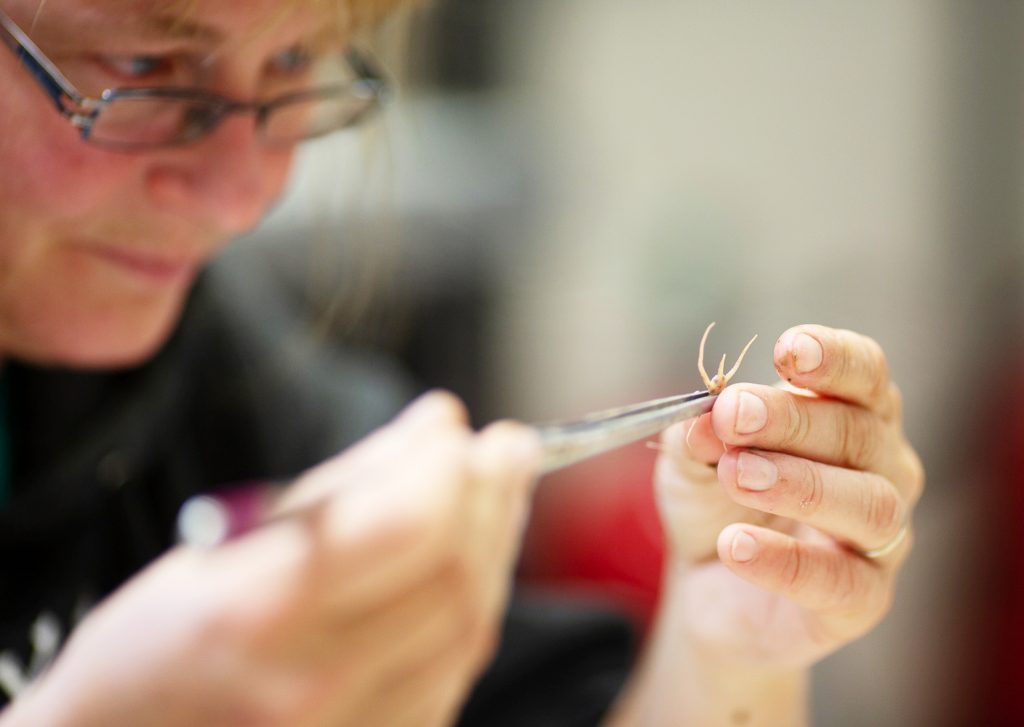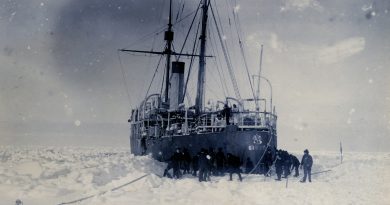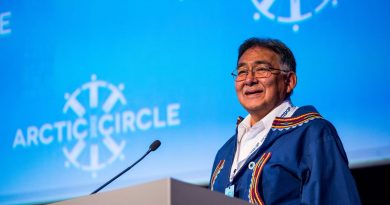Scientists sound alarm on striking transformation of Bering and Chukchi ecosystems as ocean warms

A team of scientists are sounding the alarm on some of the striking changes they’re witnessing in the Bering and Chukchi ecosystems as sea ice and water temperature change.
“Extremely warm conditions from 2017 into 2019—including loss of ice cover across portions of the region in all three winters—were a marked change even from other recent warm years,” the scientists said in the abstract to their paper published Monday in the journal Nature Climate Change titled “Evidence suggests potential transformation of the Pacific Arctic ecosystem is underway.”
“Biological indicators suggest that this change of state could alter ecosystem structure and function.”
During the research, the multidisciplinary team, looked at everything from the physical drivers of change, to biological response, as well as consequences of the changes on subsistence hunters commercial fishing and industrial shipping.
“The rate of change over the study timeframe came as a shock,” said Henry Huntington, the study’s lead author, in a news release put out by the University of Alaska Fairbanks, which had several researchers that worked on the paper.
“Having a team with the expertise to put together the pieces across the whole ecosystem simply drives home how far-reaching the changes are and how much they matter,” Huntington said.
Data looked at by the researchers suggested a range of changes currently under way. The full data from the North Pacific Research Board’s Arctic Integrated Ecosystem Research Program will be released in July 2021.
Sea Ice
- spring ice retreat was earlier than normal in recent years
- sea ice that used to start forming each fall has been absent or sparse into January or February
- waters that usually remained close to freezing year-round near the bottom of the ocean have warmed for parts of each fall and winter from 2014-2018
Animals
- ice seals absent from large portions of some of their main breeding areas
- dead seals reported in unusually high numbers on the Bering and Chukchi coasts
- bowhead whales, which typically migrate south of St. Lawrence Island, observed year-round north of the Bering Strait
Fish
- juvenile Arctic cod more abundant in 2017 than in 2012 and 2013
- pink salmon numbers increased dramatically in the northern Bering Sea in 2017
-Source University of Alaska Fairbanks
The region
The Bering and Chukchi Sea region is bracketed on one side by Russia, and the other side by the American state of Alaska, and is an area increasingly affected by the changing environment.
“What this means for the region’s human and other inhabitants remains to be seen, especially when industrial shipping and other activities are also increasing,” Huntington said. “What happens in the northern Bering and Chukchi seas may be a foretaste of what can be expected elsewhere in the world’s oceans in the coming years and decades.”
The Bering region includes around 70 Indigenous communities in all including Inupiat, Central Yup’ik, Cup’ik, St. Lawrence Island Yupik, Unangan and Chukchi Peoples.
Besides the University of Alaska Fairbanks, the research team was made up of researchers from the University of Washington, the National Oceanic and Atmospheric Administration, the Alaska Department of Fish and Game, the North Slope Borough Department of Wildlife Management, the North Pacific Research Board, Stantec and Huntington Consulting.

The team’s expertise ranged from physical and biological oceanographers, to ichthyologists (who study fish), ornithologists, marine mammalogists, marine ecologists and social scientists.
Ongoing study
Data collected for the paper is part of the North Pacific Research Board’s Arctic Integrated Ecosystem Research Program (Arctic IERP). The program started in summer 2017 to study the marine ecosystem in the northern Bering and Chukchi Seas. Approximately $18.6 million US will be invested in the project.
Write to Eilís Quinn at eilis.quinn(at)cbc.ca
Related stories from around the North:
Canada: Biosecurity an increasing concern in Arctic, Antarctic regions, experts warn, Eye on the Arctic
Finland: Finland needs its own space research centre, gov’t report says, Yle News
Russia: Bering Sea region focus of recent papers on climate risk to northern communities, Eye on the Arctic
Sweden: Scientists fire rocket from Arctic Sweden into the heart of aurora borealis, Radio Sweden
United States: Communities wrestle with shark-bite mystery off Alaskan coast, Eye on the Arctic



